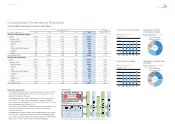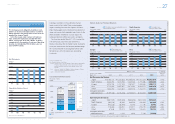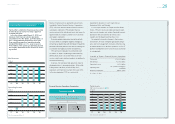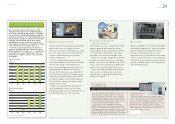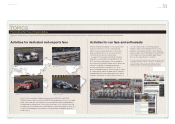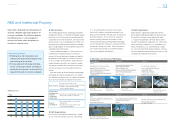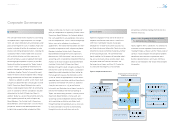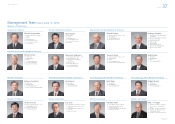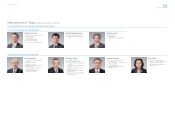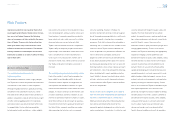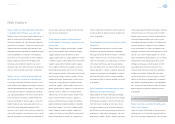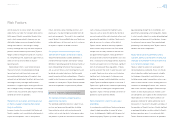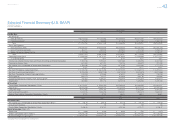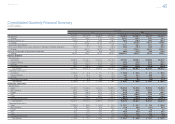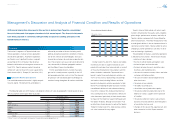Toyota 2013 Annual Report Download - page 36
Download and view the complete annual report
Please find page 36 of the 2013 Toyota annual report below. You can navigate through the pages in the report by either clicking on the pages listed below, or by using the keyword search tool below to find specific information within the annual report.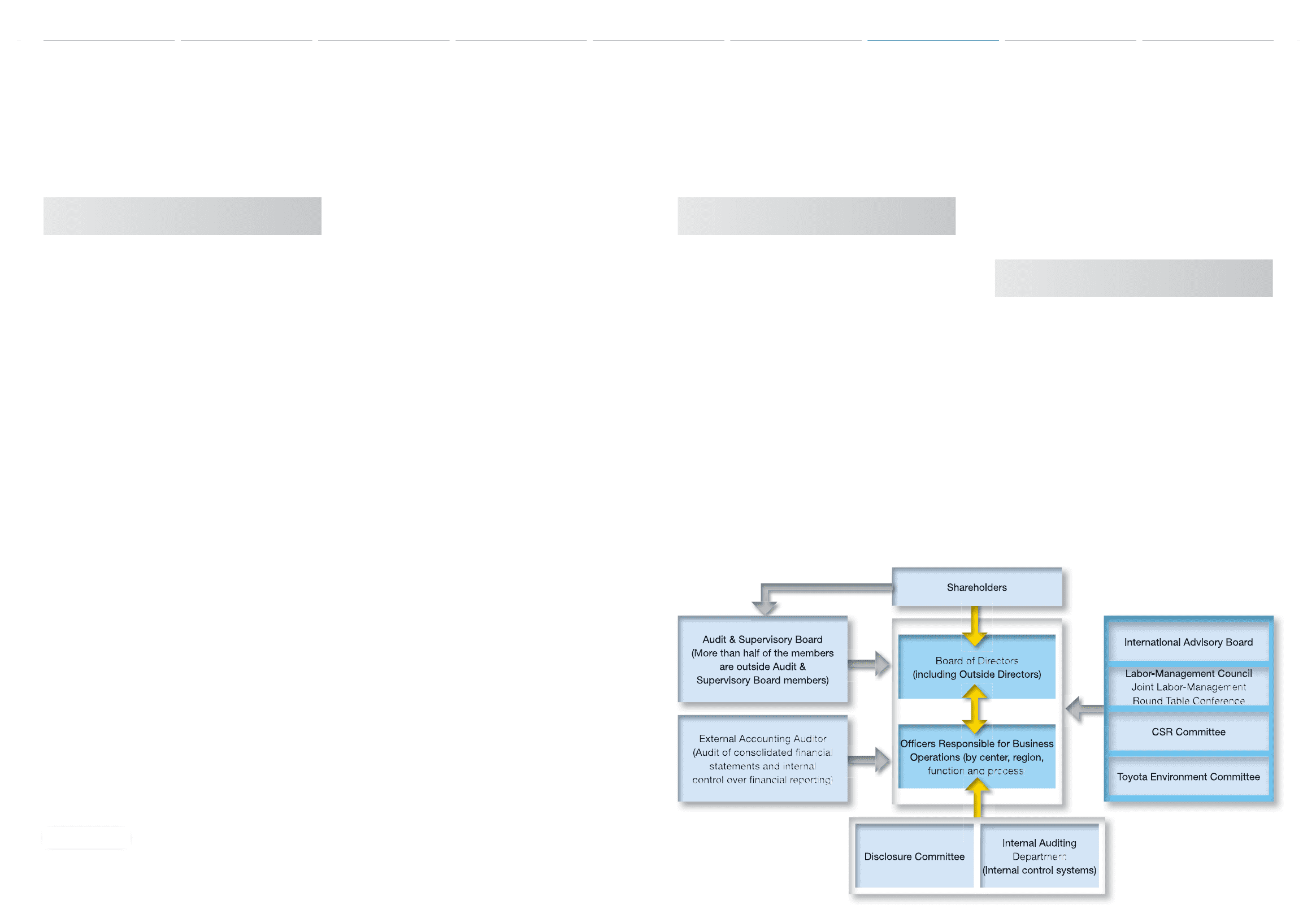
Toyota Global Vision President’s Message Launching a New Structure Special Feature Review of Operations
Consolidated Performance
Highlights
Management and
Corporate Information Investor InformationFinancial Section
Page 36
NextPrev
ContentsSearchPrint
ANNUAL REPORT 2013
쏋 Compliance
The CSR Committee reviews important issues relating
to corporate ethics, legal compliance, risk manage-
ment, and social contribution and also develops action
plans concerning these issues. In addition, Toyota has
created a number of facilities for employees to make
inquiries concerning compliance matters, including the
Compliance Hotline, which enables them to consult
with an outside attorney, and takes measures to
ensure that Toyota is aware of signifi cant information
concerning legal compliance as quickly as possible.
Toyota will continue to promote the “Toyota Code of
Conduct” which is a guideline for the behavior and
conduct of employees of Toyota and its consolidated
subsidiaries (together “Toyota”) all around the world.
Toyota will work to advance corporate ethics through
training and education at all levels and in all departments.
Toyota has adopted an auditor system. Seven Audit
& Supervisory Board Members (including four Outside
Audit & Supervisory Board Members) play a role in
Toyota’s corporate governance efforts by undertaking
audits in accordance with the audit policies and plans
determined by the Audit & Supervisory Board. In
addition, Toyota has secured the personnel and frame-
work supporting the audit by Audit & Supervisory
Board Members. The Outside Audit & Supervisory
Board Members advise Toyota from a fair and neutral
perspective, based on their broad experience and
insight in their respective fi elds of expertise. While
Toyota currently does not have its own standard or
policy on independence in appointing Outside Audit &
Supervisory Board Members, the Company believes
that such appointments are appropriate since various
rules on independence, such as stock exchange regu-
lations, are used as references in making such
appointments. The state of internal controls and inter-
nal audits are reported to Audit & Supervisory Board
Members (including Outside Audit & Supervisory
Board Members) through the Audit & Supervisory
Board and the “CSR Committee,” and the status of
accounting audits is reported by independent External
Auditors to the Audit & Supervisory Board Members
(including Outside Audit & Supervisory Board
Members) through the Audit & Supervisory Board. To
enhance the system for internal audits, a specialized
organization made independent of direct control by
the management evaluates the effectiveness of the
system to secure the appropriateness of documents
regarding fi nancial calculation and other information in
accordance with Section 404 of the U.S. Sarbanes-
Oxley Act and Article 24-4-4 (1) of the Financial
Instruments and Exchange Law of Japan. In order to
enhance the reliability of the fi nancial reporting of
Toyota, the three auditing functions—audit by Audit &
Supervisory Board Members, internal audit, and
accounting audit by Independent External Auditors—
aid in conducting an effective and effi cient audit
through meetings held periodically and as necessary
to share information and come to understanding
through discussion on audit plans and results.
Emphasizing Front-line Operations +
Multidirectional Monitoring
Toyota’s Corporate Governance
쏋 Accountability
Toyota has engaged in timely and fair disclosure of
corporate and fi nancial information as stated in the
CSR Policy “Contribution towards Sustainable
Development.” In order to ensure the accurate, fair,
and timely disclosure of information, Toyota has estab-
lished the Disclosure Committee chaired by an offi cer
of the Accounting Division. The Committee holds
regular meetings for the purpose of preparing, report-
ing, and assessing its annual securities report, quar-
terly report under the Financial Instruments and
Exchange Law of Japan, and Form 20-F under the
U.S. Securities Exchange Act, and also holds
extraordinary committee meetings from time to time
whenever necessary.
쏋 Basic Policy Regarding the System to Secure
the Appropriateness of Business
Toyota, together with its subsidiaries, has created and
maintained a sound corporate climate based on the
“Guiding Principles at Toyota” and the “Toyota Code of
Conduct.” Toyota integrates the principles of problem
identifi cation and continuous improvement into its
business operation process and makes continuous
efforts to train employees who will put these principles
into practice.
Corporate Governance
쑽 Read more
R&D and Intellectual Property Corporate Philosophy Corporate Governance [2 of 2] Management Team Risk Factors


